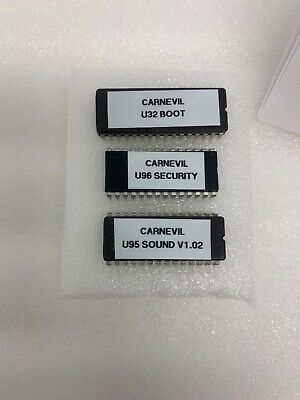Jacksonville Computer Network Issues and Challenges: Jacksonville is a vibrant city known for its beautiful beaches and rich culture. But behind the scenes, many residents and businesses face a common frustration: computer network issues. Whether you’re working from home, managing a small business, or just trying to enjoy your favorite streaming service, slow internet speeds and connectivity problems can put a damper on daily activities. Understanding these challenges is crucial in maintaining an efficient digital life.
As technology continues to evolve, so do the complexities of our networks. Knowing how to tackle these issues head-on can make all the difference in ensuring smooth operations at work or play. In this post, we’ll explore effective tips and solutions tailored specifically for Jacksonville’s unique landscape of computer network challenges. Let’s dive into how you can enhance your online experience!
Understanding Jacksonville Computer Network Issues
Jacksonville, with its growing tech scene and increasing number of remote workers, faces distinct computer network challenges. The city’s sprawling geography means that many users are spread across diverse areas, leading to varying internet service quality.
Moreover, the influx of new businesses generates additional demand on existing infrastructure. This surge can overwhelm networks and create bottlenecks during peak hours.
Weather conditions also play a role in Jacksonville’s connectivity issues. Storms or heavy rain can disrupt services and lead to frustrating downtime for both homes and offices.
Additionally, security threats loom large over local networks. Small businesses may lack robust protection against cyberattacks, making them vulnerable targets.
Understanding these unique challenges is key to navigating Jacksonville’s digital landscape effectively while adapting to continuous technological advancements.
Understanding the Causes of Jacksonville Computer Network Issues
Network issues can arise from a variety of sources. Understanding these causes is key to addressing them effectively.
One common culprit is outdated hardware. Old routers and switches may struggle to handle modern demands, leading to slowdowns or dropped connections.
Another significant factor is network congestion. When too many devices are connected at once, bandwidth can become strained, resulting in frustrating lag times for users.
Additionally, environmental factors play a role. Interference from nearby electronics or physical obstructions can disrupt wireless signals, causing connectivity problems.
Software glitches also contribute to the chaos. Outdated drivers or incompatible applications may hinder performance unexpectedly.
Human error should not be overlooked. Misconfigurations during setup often lead to ongoing complications that could have been easily avoided with proper planning and execution.
Powerful Tips for Maintaining a Stable Network
Regularly update your router’s firmware. Manufacturers release updates that can fix bugs and improve performance.
Set up a strong password for your Wi-Fi network. A complex password deters unauthorized access, enhancing security significantly.
Monitor the devices connected to your network. Use tools to identify unusual activity or unfamiliar devices that could indicate potential intrusions.
Organize your cables and equipment properly. Clutter can lead to overheating or connectivity issues, so keep everything neat and ventilated.
Consider investing in quality hardware. Upgrading routers and switches may seem costly but often pays off with improved speed and reliability over time.
Implement Quality of Service (QoS) settings on your router. Prioritizing essential traffic ensures critical applications receive bandwidth when needed, maintaining overall stability during peak usage times.
Solutions for Common Network Problems:
Slow Internet Speed can be incredibly frustrating. If your connection is dragging, try resetting your router and checking for bandwidth hogs on the network. Disconnect devices that aren’t in use.
Network Connectivity Issues often stem from physical obstructions or poor configurations. Ensure your router is centrally located and check cables for damage. Sometimes, simply rebooting your devices can resolve connectivity problems.
Security Breaches are a serious concern today. Regularly update firewalls and antivirus software to safeguard against threats. Implement strong passwords and change them periodically for added security.
Hardware Malfunctions might require immediate attention. Inspect routers, switches, and other equipment for wear or age-related decline. Replacing outdated components can vastly improve performance.
Software Compatibility Problems arise when different systems don’t communicate effectively. Regular updates to both hardware drivers and software applications ensure smooth operation across all platforms without conflicts.
– Slow Internet Speed
Slow internet speed is a common frustration for many in Jacksonville. It can disrupt work, online gaming, and streaming experiences. Identifying the cause is essential to finding a solution.
One major factor could be your Internet Service Provider (ISP). Sometimes, network congestion during peak hours leads to sluggish speeds.
Additionally, outdated hardware may hinder performance. An old router or modem can bottleneck your connection.
Wi-Fi interference from other devices also plays a role. Walls and electronic devices might block signals, reducing speed significantly.
Running multiple applications simultaneously can overwhelm your bandwidth. Prioritizing tasks may help improve overall connectivity and responsiveness. Addressing these issues will pave the way for smoother online experiences across Jacksonville’s digital landscape.
– Network Connectivity Issues and Jacksonville Computer Network Issues
Network connectivity issues can be incredibly frustrating. They disrupt workflows and leave users feeling helpless.
Common culprits include faulty cables, outdated equipment, or interference from other devices. If your connection drops unexpectedly, it’s a sign that something needs attention.
Check your hardware first. Loose connections or damaged routers often cause instability. Replace any worn-out parts to enhance performance.
Wi-Fi networks are particularly prone to interference from walls and electronic devices. Positioning the router strategically can make a significant difference in maintaining a strong signal throughout your space.
Don’t overlook software updates either. Outdated firmware may lead to compatibility problems that hinder connectivity.
Running diagnostics tools on your network can help identify underlying issues quickly. With the right approach, these challenges become manageable obstacles rather than insurmountable barriers.
– Security Breaches
Security breaches are a growing concern for businesses in Jacksonville. Cybercriminals continuously develop sophisticated methods to infiltrate networks. This can lead to data theft, financial loss, and reputational damage.
Organizations may experience unauthorized access to sensitive information. Employee records, customer data, and intellectual property can be at risk. It’s crucial to remain vigilant against these threats.
Implementing robust security protocols is essential. Firewalls, encryption techniques, and strong passwords play vital roles in safeguarding your network. Regularly updating software helps patch vulnerabilities that hackers exploit.
Employee training is equally important. Ensuring staff understands phishing schemes and safe browsing practices can significantly reduce risks. A well-informed team acts as a first line of defense.
Monitoring your network for unusual activity can also help identify potential breaches early on. The faster you respond, the better chance you have of mitigating damages from an attack.
– Hardware Malfunctions
Hardware malfunctions can disrupt your entire computer network. They often manifest as unexpected crashes, slow performance, or even complete failures. Identifying these issues early is crucial to maintaining operational efficiency.
Common culprits include failing hard drives and overheating components. Dust accumulation can also lead to poor ventilation, causing hardware to overheat and malfunction. Regularly checking connections and cleaning internal parts can help mitigate these risks.
Unexpected power surges may corrupt essential data or damage equipment. Utilizing surge protectors creates an additional layer of defense against such threats.
In many cases, software updates may inadvertently highlight underlying hardware problems rather than fix them. Keeping a close eye on system alerts will provide valuable insights into potential hardware issues before they escalate into something far more serious.
– Software Compatibility Problems
Software compatibility problems can be a hidden headache for Jacksonville businesses. When applications refuse to work together, productivity takes a hit.
Often, these issues arise after updates or new installations. Programs that once functioned seamlessly may suddenly clash, causing frustration among users. For instance, an outdated operating system might struggle to run the latest software version.
Another common scenario involves mismatched file formats. Attempting to open files created in one application using another can lead to errors and wasted time.
Regularly checking compatibility before implementing new tools is key. Keeping software updated ensures smoother interactions between programs and reduces downtime.
Consider investing in training sessions for staff as well. Educated employees are more adept at navigating these challenges when they occur, minimizing disruptions while maintaining workflow efficiency.
Importance of Regular Maintenance and Updates To Avoid Jacksonville’s Computer Network Issues
Regular maintenance and updates are crucial for a smoothly functioning computer network, especially in Jacksonville’s dynamic tech landscape. These practices ensure that your systems run efficiently and stay secure against emerging threats.
Neglecting routine checks can lead to significant issues down the line. Old software may become vulnerable, exposing your network to potential breaches.
Updates often bring enhancements that improve performance and fix bugs. With each update, you also receive patches designed to counteract newly discovered vulnerabilities.
In addition, regular maintenance helps identify hardware wear or impending failures before they disrupt operations. This proactive approach saves time and money by preventing unexpected downtimes.
Investing time in maintaining and updating your network establishes a strong foundation for reliability and security amidst the growing challenges of technology in Jacksonville.
Steps for Troubleshooting Network Issues
When faced with network issues, start with the basics. Check all cables and connections first. A loose cable can often be the culprit.
Next, reboot your router or modem. This simple step may reset any temporary glitches that are causing problems.
If issues persist, run a speed test online to assess your current bandwidth. This can help identify if you’re experiencing slow speeds or connection drops.
Consult your device settings as well. Ensure that Wi-Fi is enabled and airplane mode is turned off on mobile devices.
Check for any software updates too. Outdated firmware might lead to compatibility issues affecting your network performance.
Consider reaching out to your Internet Service Provider (ISP). They might be able to diagnose external factors impacting connectivity in Jacksonville’s network landscape.
Future Trends in Jacksonville’s Network Technology
The landscape of computer networks is rapidly evolving, especially in a tech-savvy city like Jacksonville. As businesses and residents alike seek more reliable connections, several trends are emerging that promise to enhance network performance and security.
One significant trend is the adoption of 5G technology. This next-generation wireless standard offers faster speeds and reduced latency, making it ideal for both personal and business use. With many providers expanding their 5G infrastructure in Jacksonville, users can expect improved connectivity that supports everything from streaming services to critical business applications.
Another important development is the move towards cloud-based networking solutions. Companies are increasingly opting for cloud environments as they provide scalability and flexibility while reducing hardware costs. This shift not only streamlines operations but also enhances collaboration among teams spread across different locations.
Moreover, cybersecurity will continue to be at the forefront of network technology advancements. As cyber threats become more sophisticated, businesses must prioritize robust security measures. Advanced threat detection systems powered by artificial intelligence can help identify vulnerabilities before they lead to significant breaches.
Internet of Things (IoT) devices are set to proliferate throughout Jacksonville’s homes and offices. These smart devices require stable networks capable of handling increased data traffic without compromising speed or reliability. The integration of IoT will drive innovation in how we manage our networks daily.
Staying ahead of these trends will empower individuals and organizations in Jacksonville to tackle their computer network issues effectively while optimizing performance for years to come.



